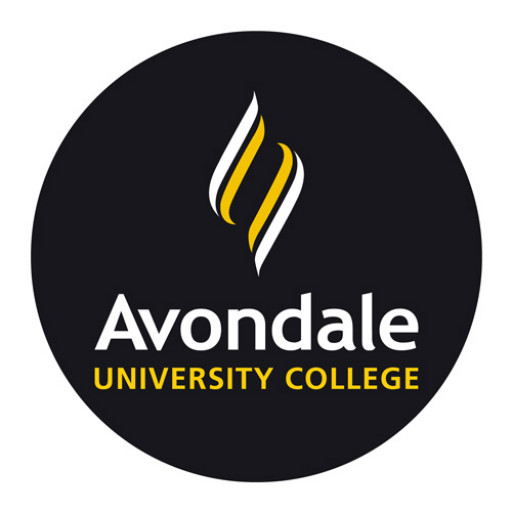Photos of university / #rmituniversity
The Bachelor of Arts at the Royal Melbourne Institute of Technology (RMIT) offers students a comprehensive and dynamic education designed to foster critical thinking, creative expression, and cultural understanding. This undergraduate program provides a flexible curriculum that allows students to explore a wide range of disciplines within the arts, including visual arts, communication, writing, design, and humanities. Students are encouraged to develop their individual interests through electives and specialization options, preparing them for diverse careers in the creative industries, media, education, and cultural sectors. The program emphasizes practical skills alongside theoretical knowledge, ensuring graduates are well-equipped to navigate and contribute to a rapidly evolving global landscape. With access to cutting-edge facilities, industry placements, and collaborations with arts organizations, students gain hands-on experience and professional networks that enhance their employability. The Bachelor of Arts at RMIT champions a multidisciplinary approach, combining academic excellence with real-world applications. It is ideal for individuals passionate about the arts and seeking to make meaningful contributions to society through their creative work. By fostering critical inquiry, innovative thinking, and cultural literacy, the program aims to prepare graduates to become thoughtful, adaptable, and engaged citizens, ready to thrive in an interconnected world.
This course is accredited by the Design Institute of Australia (DIA) and the Council of Textile & Fashion.
Victorian Certificate of Education (VCE) Units 3 and 4: a study score of at least 30 in English (EAL) or at least 25 in English besides EAL.
The Bachelor of Arts at the Royal Melbourne Institute of Technology (RMIT) offers various options for financing studies to accommodate the diverse needs of its students. International students are required to pay tuition fees which vary depending on the specific major and study load; these fees are typically payable per semester and are detailed in the official fee schedules published by RMIT. Australian domestic students may access government-funded schemes such as the Commonwealth Supported Places (CSP), which significantly reduce the financial burden by subsidizing the tuition fees, or they may choose to pay the full fee upfront or via multiple payment options offered by the university.
RMIT also provides a range of scholarships aimed at both domestic and international students. These scholarships are awarded based on academic merit, financial need, or specific criteria related to the program, and they may cover partial or full tuition fees, as well as living costs. Prospective students are encouraged to apply early and to check their eligibility for various scholarship programs through the university’s dedicated portal. Additionally, RMIT partners with external organizations, governments, and industry sponsors to offer scholarships and financial assistance programs that support students throughout their studies.
Many students finance their education through student loans, such as the Australian HELP (Higher Education Loan Program), which allows eligible domestic students to defer their tuition fees and repay them through the tax system once they achieve a certain income threshold. International students, on the other hand, often use personal savings, family support, or education-specific loans from banks or financial institutions in their home countries to fund their studies at RMIT.
The university also provides flexible payment plans to ease the financial pressure on students, allowing installments over the semester or year. Students are advised to consult the RMIT Student Financials Office for detailed information about tuition fee deadlines, payment methods, and available financial aid options. To support student wellbeing and reduce financial stress, RMIT offers financial planning and advice services, which help students budget effectively and explore all available funding sources.
In summary, funding the arts program at RMIT can involve a combination of government support, scholarships, personal funding, and flexible payment arrangements, ensuring that students have multiple pathways to finance their education and focus on their academic and creative pursuits.
The Bachelor of Arts at RMIT University offers students a comprehensive and flexible education in the arts and humanities, designed to develop critical thinking, creative skills, and a deep understanding of cultural and social issues. The program covers a wide range of disciplines, including history, philosophy, languages, communication, media, and visual arts, allowing students to tailor their degree according to their interests and career aspirations. Students have the opportunity to engage in hands-on experiences, such as internships, industry projects, and exhibitions, which facilitate practical skills and professional networks. The curriculum emphasizes contemporary issues and encourages students to explore diverse perspectives, fostering cultural awareness and social responsibility. RMIT’s state-of-the-art facilities and vibrant campus environment enhance the learning experience, providing access to advanced technologies and collaborative spaces. The program prepares graduates for various careers in arts, media, education, public relations, cultural management, and creative industries. Additionally, students can choose from a range of specializations or minors to deepen their expertise in specific areas. The Bachelor of Arts at RMIT promotes critical inquiry, creativity, and communication, equipping students with the tools to contribute meaningfully to society and succeed in a dynamic global job market. Support services, such as academic advising and career counseling, are readily available to assist students throughout their studies. Upon completion, graduates are well-equipped to pursue further studies or enter a diverse array of professional pathways, making the RMIT Bachelor of Arts a versatile and valuable degree.








